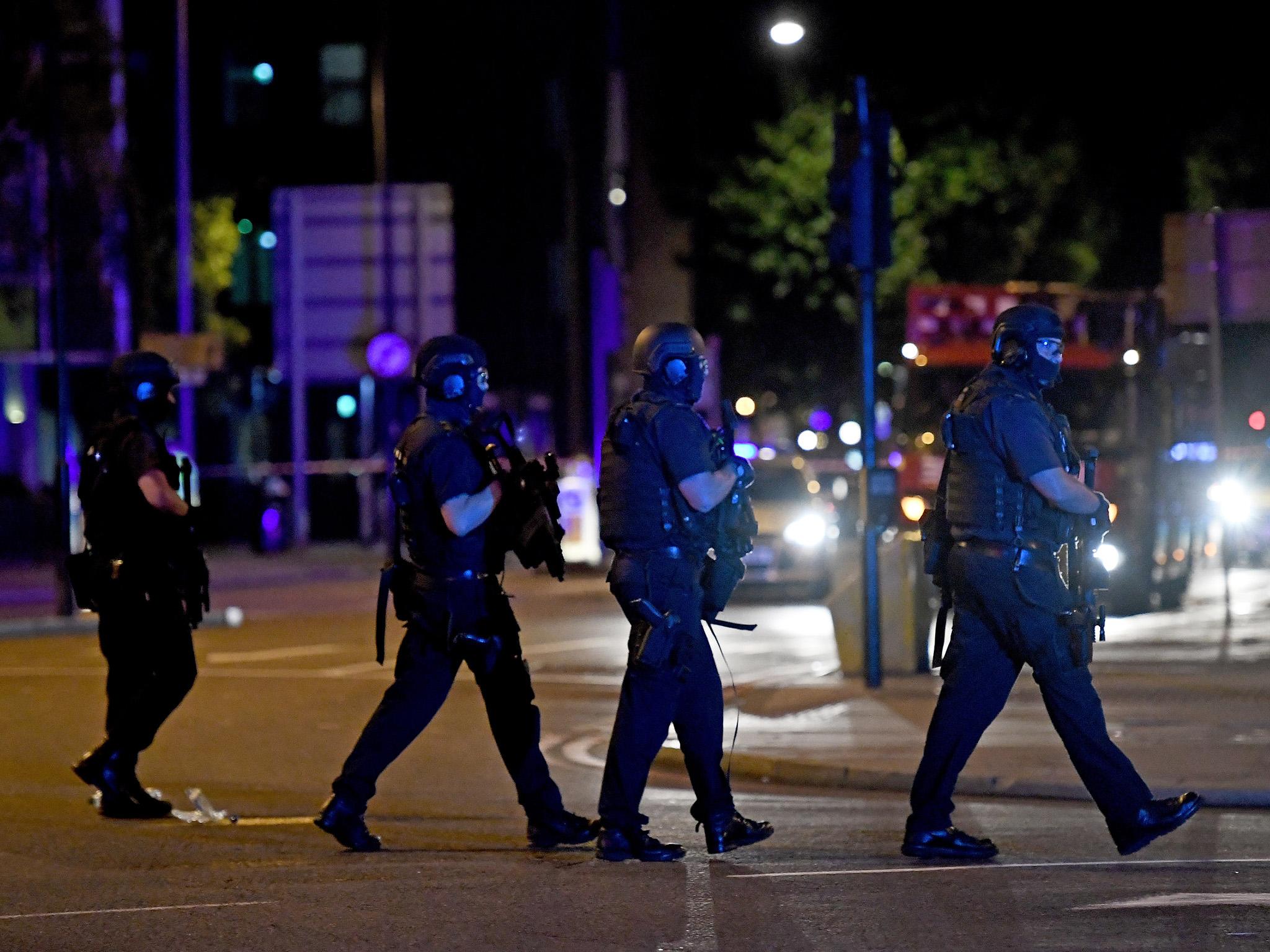Military-grade first aid kits to be put in crowded places to ‘increase survivability’ after terror attacks
Members of the public have resorted to using makeshift items to treat casualties after terror attacks including the Manchester bombing and London Bridge stabbings

Your support helps us to tell the story
From reproductive rights to climate change to Big Tech, The Independent is on the ground when the story is developing. Whether it's investigating the financials of Elon Musk's pro-Trump PAC or producing our latest documentary, 'The A Word', which shines a light on the American women fighting for reproductive rights, we know how important it is to parse out the facts from the messaging.
At such a critical moment in US history, we need reporters on the ground. Your donation allows us to keep sending journalists to speak to both sides of the story.
The Independent is trusted by Americans across the entire political spectrum. And unlike many other quality news outlets, we choose not to lock Americans out of our reporting and analysis with paywalls. We believe quality journalism should be available to everyone, paid for by those who can afford it.
Your support makes all the difference.Trauma kits including military-grade wound dressings are to be put in crowded public spaces to “increase survivability” after potential terror attacks.
Arenas, football stadiums and railway stations are among the places to be offered new “public access trauma (Pact) first aid kits”.
The packages, created with input from counterterror police, are being rolled out as the UK’s national terror threat level remains “substantial”, meaning further attacks are considered likely.
Officials said they “aim to increase survivability following stabbings, terror attacks and other serious incidents”.
The Manchester Arena inquiry has heard harrowing details of how stewards had to use items of clothing and merchandise to treat injured casualties.
They were forced to make tourniquets from everyday items and use Ariana Grande T-shirts as wound dressings because they had no proper equipment following the bombing.
Several terror attacks using knives have also seen members of the public attempt to treat wounded victims at the scene, including some who did not survive.
Official protocols mean that paramedics cannot enter the scene of attacks without protection until they are formally declared safe, which has delayed treatment following several major incidents including the Manchester bombing and 2017 London Bridge attack.
The national coordinator for the “protect and prepare” strand of counter terrorism policing said the kits would be useful during unfolding incidents where members of the public are administering first aid.
Detective Chief Superintendent Michael Orchard added: “It is vital that we raise awareness of how simple first aid, with appropriate equipment, can improve a person’s chances of survival in a whole range of scenarios.
“It is hoped that the new standards for Pact first aid kits will assist when people suffer the most serious of injuries.
“This is particularly relevant in the event of a live or ongoing terrorist incident, when first aid may need to be administered by the public until first responders are able to reach any casualties.”
They will include military-grade wound dressings, tourniquets and other vital components, as well as clear written and visual instructions about how to use them.
St John Ambulance, which worked on the kits alongside citizenAID and the National Counter Terrorism Security Office, called them an “important step forward on a path towards saving more lives”.
Medical director Dr Lynn Thomas said: “Whilst they are not mandatory, the long-term aim is for Pact first aid kits to become as commonplace and widely accepted as public access defibrillators.”
It comes as the government considers a new legal duty requiring minimum standards of protection against terror attacks in large entertainment venues and public spaces.
Campaigning by Figen Murray, whose son Martyn Hett was killed in the Manchester attack, sparked a public consultation that closed in July.
The “Protect duty”, also known as Martyn’s Law, may be restricted to venues with a capacity of 100 people or over, or to organisations that employ over 250 staff and operate at publicly-accessible locations.
Ms Murray said: “After the Manchester Arena bombing, I had wrongly assumed that venues and public spaces would have put lifesaving medical equipment in place. The inquiry into the attack has clearly shown that this is not the case. These bleed kits, if on hand, could save countless lives and not only during a terror attack.”



Join our commenting forum
Join thought-provoking conversations, follow other Independent readers and see their replies
Comments